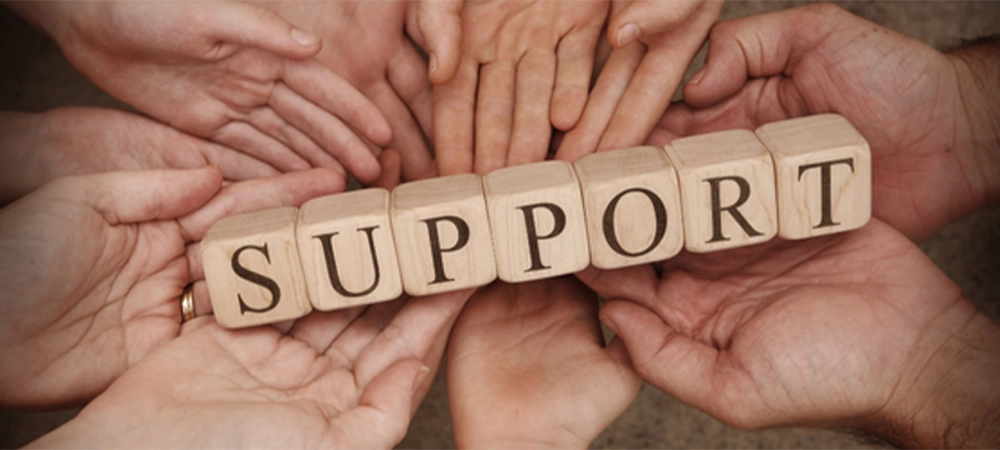Having a loved one struggling with an addiction can be the most challenging thing ever. You know they need professional help, but they do not see it that way. Unsurprisingly, the question of how to help a loved one get addiction treatment is one that weighs on the mind of many. But, convincing a friend or family member to get professional help for their addiction can be tricky. If you do not handle it the right way, you may cause more harm than good. However, there is a right way to encourage your loved ones to get rehab without creating a mess.
Often, most addicts do not realize that they are suffering from addiction. Other times, they do not dare to admit they are in trouble and seek help. In light of this, you must learn the proper steps on how to help a loved one get addiction treatment.
Professional help is, more often than not, the best course of action for anyone battling addiction. So, if you want to help someone struggling with addiction, get them to rehab. We will give you the best tips on how to help a loved one get addiction treatment in this article. But before that, let us look at why it is vital that your loved one gets professional addiction treatment.

The Need for Professional Addiction Treatment
For you to encourage your addicted loved one to seek professional addiction help, you need to know the various benefits it offers. Professional addiction treatment provides the highest chances of rehabilitation and long-term recovery. Here are some of the reasons you should encourage your loved ones to get professional rehab.
Medical Stabilization
Kicking an addiction can be very tough. More often than not, the patient experiences withdrawal symptoms, which can sometimes be life-threatening. Acute withdrawal symptoms require immediate medical attention, which your loved one may not get if they are attempting DIY rehabs. However, a professional addiction treatment facility will provide standby medical personnel and equipment.
Therapeutic Intervention
During addiction treatment, in addition to medical care and assistance, it may be necessary to provide therapy, as well. This will help guide your loved one through the entire addiction treatment and recovery process. Therapy during addiction rehab will also go a long way in helping your loved one prepare for the real world.
Peer Support
Peers can be of great help to someone struggling with addiction. This is especially true when they have been in similar situations. Other residents at professional addiction treatment centres can provide incredible support for your loved one that you may be unable to give. Hearing from others, learning from their mistakes, and successes are vital benefits of professional treatment.

Relapse Prevention
Relapse during addiction recovery is quite common. However, not only does it set the patient back, but it can also mean a life-threatening situation. Nonetheless, a relapse is avoidable. Addiction treatment professionals are better equipped to help your loved one prevent a relapse.
Post-care
Finally, professional addiction treatment programs also provide aftercare to their patients. This will ensure that your loved one has all the support they need for long-term recovery following addiction treatment.
Related article: Addiction Treatment in Toronto: How to Recognize the Signs of Marijuana Addiction
How to Encourage Your Loved One to Get Addiction Treatment
Knowing the advantages of professional addiction treatment is the first step to helping someone struggling with addiction. That way, you will be better equipped to convince an addicted loved one to seek rehabilitation. Now that you have completed the first step let us tell you how to help a loved one the treatment they need.
Find out how your loved one feels
You must try to find out what your loved one feels about their addiction. But first, you must let them know you are concerned about their addictive habit. Then, ask them what they think about it. Although it may lead to denial, it may also influence your loved one to reveal feelings they have otherwise suppressed. Listen to them, acknowledge their fears and reasons for turning to drugs, if they have those. Remember, your goal is not to judge. Instead, empathize with them and try to find out the barriers in their path to addiction treatment.
Educate them

Once you have found out how your loved one feels about addiction and treatment, the next step is to educate them. When you talk to your loved one about addiction treatment and rehab, it will ease their concerns about going. To drive home your point, you can tell them stories about people they know who have been in similar situations and made a significant recovery.
Although you want to emphasize the need for rehab and how it will be, there are other vital points. You need to educate your loved ones about the negative impact of drug use on their lives. Help them see reality. However, ensure that you keep your tone calm and non-judgmental.
Suggest professional addiction treatment
For many people, the problem with how to help a loved one get addiction is knowing the right moment to suggest therapy. However, it does not have to be complicated. One way around this is by emphasizing what your loved one will gain by attending addiction rehab. Remember to be understanding and come from a place of the desire to repair your relationship with them.
Also, it may help if you made the eventual decision to go to rehab to seem like their own. Never try to force them to commit to addiction treatment. An excellent way to do is to ask open-ended questions and let them do the talking.
- What do they want their future to be?
- Are they happy with their life?
- What do they feel the need to change in their life?
- How do they feel about attending rehab?
All these are questions that can encourage your loved one to get rehab.
Hold an Intervention
If nothing else works, you may have to hold an addiction intervention for your loved one. An intervention is when close friends and family come together to talk to a loved one who is abusing drugs. Interventions are usually effective because it shows your loved one that they indeed have a problem and that many people are worried.
The goal of this conversation is to get that loved one to check into a professional addiction rehabilitation centre. Holding an intervention on behalf of your loved one may help them understand the urgency of addiction treatment. If you are unsure how to organize the meeting or the path of the conversation, you can call in an intervention specialist.
Do not give up
Our final tip on how to help a loved one get addiction treatment is not to give up. Your loved one may not change overnight and check into rehab the next day despite your best efforts. Acknowledge that it may take some time to convince your loved one that professional addiction treatment is their best course of action.
Also, do not force it, and more importantly, do not give up. By letting your loved one know that you care about their wellbeing, you’ve sowed the first seed. They may start wrestling with the problem in their mind, and the next time you ask, they may be ready for rehab.
Bringing It All Together
Trying to encourage your loved one to get rehab can be mentally and physically draining for all parties involved. However, as long as you know the proper way to help a loved one get addiction treatment, you may eventually get the results you decide. Adequate planning and timing will do a lot to help too. No matter what you do to convince a loved one to get professional addiction treatment, never point fingers and be honest. Most of the time, all they need is support and a gentle nudge in the right direction.
Here at Addiction Rehab, we have taken extra steps to make sure that we can provide safe addiction treatment in the middle of a pandemic.
If you need help convincing your loved one struggling with addiction to get rehab, please reach out to us. You can call 1-855-787-2424 to speak with an addiction expert today!
Related article: Addiction Treatment and COVID-19: Staying Ahead of Mood Swings







